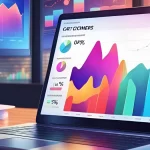As a business owner or manager in the Philippines, understanding these differences is crucial for making informed decisions about the right business management system for your organization.
In today’s rapidly evolving business landscape, implementing the right technology solutions can significantly impact your company’s success. ERP and CRM are two distinct systems that serve different purposes in managing various aspects of your business.
ERP systems focus on optimizing and streamlining internal processes, such as finance, supply chain management, inventory, manufacturing, and human resources. On the other hand, CRM software primarily revolve around managing customer interactions and improving sales and marketing efforts.
By exploring the key differences between ERP and CRM, you will gain a deeper understanding of how these systems can support your business goals and ensure efficient operations. Let’s dive into the functionalities of both systems and their relevance to your business management needs.
Table of Contents
Overview of ERP and CRM Functionalities
In today’s fast-paced business environment, effective management is crucial for success. This is where business management systems play a vital role. Two popular systems that businesses rely on are Enterprise Resource Planning (ERP) and Customer Relationship Management (CRM). In this section, we will provide an introduction to these systems and explore their core functionalities.
ERP, as the name suggests, focuses on managing and optimizing various resources within an organization. It integrates different departments such as finance, inventory, human resources, and production, providing a centralized platform for efficient management. ERP functionalities include:
- Financial management and accounting
- Inventory and supply chain management
- Human resource management
- Production planning and control
- Reporting and analytics
On the other hand, CRM system are designed to strengthen customer relationships and enhance sales and marketing efforts. CRM functionalities revolve around managing customer data, interactions, and communication. Key features of CRM include:
- Customer data management and profiling
- Sales and opportunity tracking
- Marketing automation and campaign management
- Customer service and support
- Analytics and reporting
Both ERP and CRM systems share some common functionalities. They streamline operations, improve communication and efficiency, and provide accurate data analysis and reporting. By leveraging these systems, businesses can optimize their processes, make data-driven decisions, and enhance overall performance.
Now that we have a brief overview of ERP and CRM functionalities, let’s explore each system in more detail. In the next sections, we will discuss the core benefits and implementation aspects of ERP software, as well as the advantages and local use cases of CRM in the Philippines.
Understanding ERP: Core Benefits and Implementation in the Philippines
ERP (Enterprise Resource Planning) systems play a crucial role in streamlining business processes and optimizing organizational efficiency. By implementing an ERP system, businesses in the Philippines can leverage numerous core benefits that translate into improved operations and growth.
One of the key advantages of ERP is the ability to enhance business reporting. With an ERP system, you can generate accurate and real-time reports on various aspects of your business, such as financial performance, inventory levels, and customer interactions. This enables you to make data-driven decisions and identify areas for improvement, ultimately driving overall business success.
Additionally, ERP systems contribute to enhanced customer service. By integrating different functional areas, such as sales, marketing, and customer relationship management, ERP enables a holistic view of customer interactions. This allows businesses to provide personalized and efficient service, resulting in increased customer satisfaction and loyalty.
Implementing an ERP system also leads to decreased inventory costs. With automated inventory management, businesses can optimize stock levels, reduce excess inventory, and minimize the risk of stockouts. This improves cash flow and enables more accurate forecasting, leading to significant cost savings.
Furthermore, ERP systems facilitate smoother supply chain management. By integrating processes such as procurement, production planning, and logistics, ERP enables efficient coordination across the entire supply chain. This minimizes delays, reduces costs, improves delivery times, and enhances overall supply chain visibility.
Are you curious about the cost of implementing HashMicro’s ERP solution? Use our pricing scheme below for a customized quote tailored to your business needs today!
Understanding CRM: Key Advantages and Local Use Cases
CRM (Customer Relationship Management) systems offer numerous benefits to businesses in the Philippines. By implementing a CRM system, you can improve customer service, enhance client profiles, reduce customer churn, streamline sales preparation, and safeguard your valuable data.
One of the key advantages of using a CRM system is the ability to provide exceptional customer service. With a CRM, you can track customer interactions, preferences, and purchase history, allowing you to personalize your interactions and provide a more satisfying experience for your customers.
Another advantage of CRM systems is the ability to develop more in-depth client profiles. By capturing and organizing valuable customer data, you can gain insights into customer behavior, preferences, and buying patterns. This information enables you to tailor your offerings and marketing strategies to meet the needs and expectations of your target audience.
In terms of reducing customer churn, CRM systems are invaluable. By identifying at-risk customers and implementing targeted retention strategies, you can decrease customer attrition and increase customer loyalty. This not only leads to higher revenue but also helps in building a strong and loyal customer base.
CRM systems also contribute to better sales preparation. With a sales CRM, you can track and manage your leads, opportunities, and sales pipeline efficiently. By having access to accurate and up-to-date customer information, you can prioritize sales activities, identify cross-selling and upselling opportunities, and close deals more effectively.
Lastly, a CRM system plays a crucial role in ensuring the security and protection of your customer data. With robust data encryption and permission management, CRM systems maintain the confidentiality and integrity of your valuable information, safeguarding it from unauthorized access or breaches.
When it comes to local use cases, CRM systems are widely embraced by businesses across different industries in the Philippines. For example, e-commerce companies use CRM systems to manage customer interactions, track order histories, and personalize marketing campaigns.
Retailers utilize CRM to gather customer data, improve loyalty programs, and provide personalized in-store experiences. Similarly, service-oriented businesses like hotels leverage CRM systems to enhance guest satisfaction, deliver personalized experiences, and drive repeat bookings. Additionally, integrating lead management software with CRM can optimize your lead tracking and qualification processes for better sales outcomes.
Comparing ERP and CRM: Differences, Integration Aspects, and Which System Suits Various Business Needs
When it comes to choosing the right business management system for your company, you may have come across two popular options: ERP (Enterprise Resource Planning) and CRM (Customer Relationship Management). While both systems offer valuable features and benefits, understanding their differences is crucial in making the right decision for your business.
ERP vs CRM: Which One is Right for Your Business?
Let’s start by comparing the core functionalities, target areas of focus, and specific features of ERP and CRM systems. ERP systems primarily focus on streamlining internal processes, such as inventory management, supply chain optimization, and financial management. On the other hand, CRM systems are designed to enhance customer relationships, improve sales and marketing efforts, and provide a centralized platform for customer data management.
One of the key differences between ERP and CRM lies in their respective areas of focus. While ERP are more comprehensive in addressing various aspects of business operations, CRM systems specialize in customer-centric activities. Therefore, if your business is primarily concerned with improving customer satisfaction, managing sales leads, and enhancing marketing campaigns, a CRM system may be the ideal choice.
However, achieving optimal business efficiency often requires a combination of both ERP and CRM systems. The integration of these systems allows businesses to harness the benefits of both worlds, ensuring a comprehensive solution that meets various business needs. By integrating ERP and CRM, you can seamlessly connect customer data with operational processes, enabling better decision-making, improved communication, and a holistic view of your business.
In conclusion, choosing between ERP and CRM depends on your business’s specific requirements and priorities. While a CRM system can greatly enhance customer relationships and sales efforts, an ERP system offers a broader range of functionalities to optimize internal processes. However, by integrating both systems, you can unlock the full potential of your business, leveraging data-driven insights to drive growth and achieve long-term success.
ERP and CRM Integration: How Combining Both Systems Can Benefit Filipino Businesses
Integrating ERP and CRM systems can bring significant advantages to Filipino businesses. By combining the power of these two systems, companies can enhance their operations, improve data visibility, and drive growth.
One of the key benefits of integrating ERP and CRM is improved data visibility. With both systems working together, businesses can have a unified view of customer information, sales data, inventory levels, and financial records. This holistic view provides a comprehensive understanding of the business’s performance and enables better decision-making.
Seamless communication between departments is another advantage of ERP and CRM software integration. These systems allow different teams, such as sales, marketing, finance, and customer service, to access and share real-time data. This eliminates the need for manual data transfer and improves collaboration, leading to increased efficiency and productivity.
Furthermore, integrating ERP and CRM systems provides enhanced customer insights. By centralizing customer data from both systems, businesses can gain a deeper understanding of their customers’ preferences, behaviors, and purchase history. This knowledge enables personalized marketing campaigns, targeted sales efforts, and improved customer service, ultimately driving customer satisfaction and loyalty.
Streamlined business processes are also a result of ERP and CRM integration. By automating workflows and eliminating duplicate data entry, businesses can optimize their operations and reduce errors. This leads to improved efficiency, faster order processing, and reduced costs.
For Filipino businesses considering ERP and CRM integration, it’s crucial to address common questions and concerns. Some FAQs include the compatibility of different ERP and CRM systems, the cost and feasibility of integration, and the potential disruptions during the implementation process. By addressing these concerns and providing clear answers, businesses can make informed decisions and ensure a smooth integration experience.
In conclusion, ERP and CRM integration offers numerous benefits to Filipino businesses. By combining these systems, companies can improve data visibility, facilitate communication, gain valuable customer insights, and streamline their operations. To maximize the potential of ERP and CRM integration, businesses should carefully evaluate their needs, choose compatible systems, and seek expert guidance during the implementation process.
Conclusion
When it comes to selecting a business solution, it’s important to consider your objectives and requirements. ERP systems excel in streamlining operations, improving communication, and providing accurate data analysis. On the other hand, CRM systems are designed to enhance customer relationships, boost sales, and provide comprehensive customer insights.
However, it’s also essential to note that ERP and CRM systems can be integrated to provide a comprehensive solution. By combining both systems, Filipino businesses can benefit from improved data visibility, seamless communication between departments, and streamlined business processes.


























